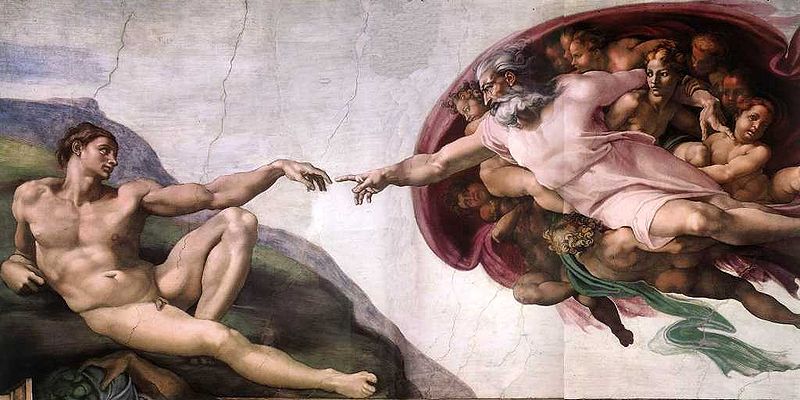In the previous column, I outlined how I think Catholic theology should look at markets: as avenues for co-creation and service. Here, I want to draw out two implications of that view that I think are very important for having the proper view of markets.
1) Positive sum exchanges.
It is simplistic, but it is worth keeping in mind the lesson from economics 101 : in any economic transaction, both participants are better off, otherwise we wouldn’t have traded. The good or service I buy from you is worth more to me than the money I pay for it, otherwise I wouldn’t have parted from it ; your money is worth more to me than the good or service I sold you, otherwise I wouldn’t have sold it.
Again, this is a simplistic picture, but it gets at a fundamental truth of natural theology : the possibility of positive-sum exchanges. It is possible for exchanges to make all participants better off. It is possible, when we combine our resources, to all leave with more than we brought to the table.
Overlooking the reality of positive-sum interactions is, I believe, the source of the vast majority of errors in economic thinking. It was the fundamental error of Malthusianism : if there is a limited set of resources, then consumption can only reach a certain point, and anybody’s enrichment must come at the expense of somebody else, including future generations. The Magisterium that proclaims the command to “be fruitful and multiply” cannot accept this error. God provides. And the avenue through which He provides is through co-creation. Unlike God, we cannot create ex nihilo ; but we can take what God has given us and make things that are more than the sum of their parts. All art testifies to this profound truth.
The fundamental error of Malthusianism is to believe that the “fuel” of economic creativity is natural resources, which are finite, when in reality this fuel is human creativity which, by God’s grace is, for all practical purposes, infinite. Today, 100-proof Malthusianism still rarely rears its head (although it does so with alarmingly increasing frequence), but most other errors are inspired by the same fundamental error as Malthusianism : that the finality of economic interactions is to distribute existing scarce resources rather than create new ones.
2) God blesses risk-taking.
“Do not be afraid.” This basic attitude is at the heart of the Christian life. The Christian is the beloved child of the Lord of Hosts. “The Lord is my light and my salvation; whom shall I fear?”
This relates to the co-creative call at the heart of our Imago Dei. For in the Biblical view, the very act of divine creation itself is an act of risk-taking. God really does play dice with the Universe. From the beginning, God made the higher creatures free, and this freedom necessarily entails a measure of risk-taking on the part of God. For God created those creatures so that they may know and glorify Him, but in making them free He runs the risk of them rejecting Him, even to the end. The Catholic (and Biblical) worldview has no time for speculations whereby God deliberately damns people simply to manifest His justice or power or some other attributes.
All vocations include this element of risk-taking. To get married, to consecrate oneself to celibacy, to havc children, these are all great risks. To commit oneself to Christ is always to take a leap in the dark—a leap, we trust and know, into the arms of the Savior, but a leap over the abyss nonetheless.
We see this fundamental link between creation and risk-taking—again, a link which in us reflects the attributes of God—very well in the world of artistry. But we see it also in the social realm. A culture of life is necessarily one open to risk-taking. So, then, in the economic realm. A culture of economic creativity is also a culture of economic risk-taking. This cannot be said without caveats, and we will get to them, but it needs to be forcefully asserted, from the start, nonetheless.













